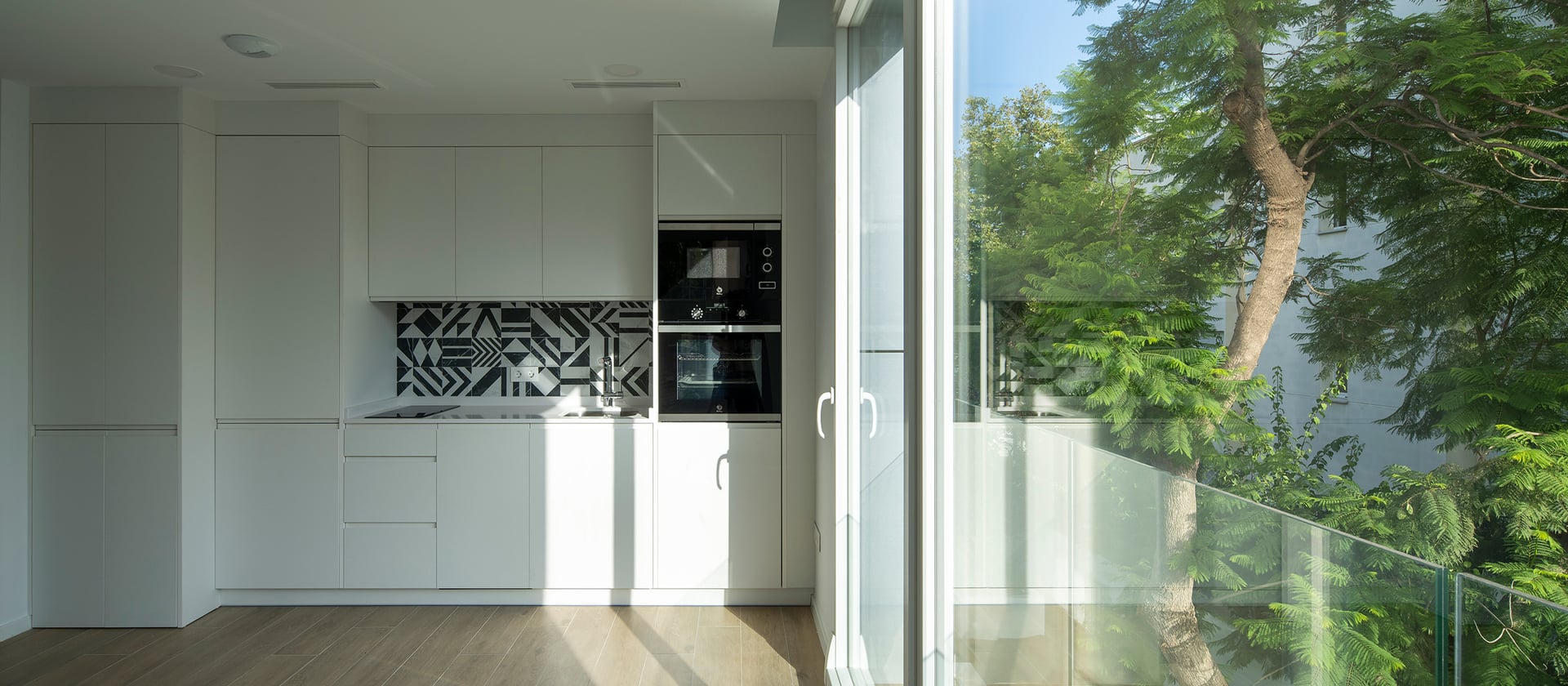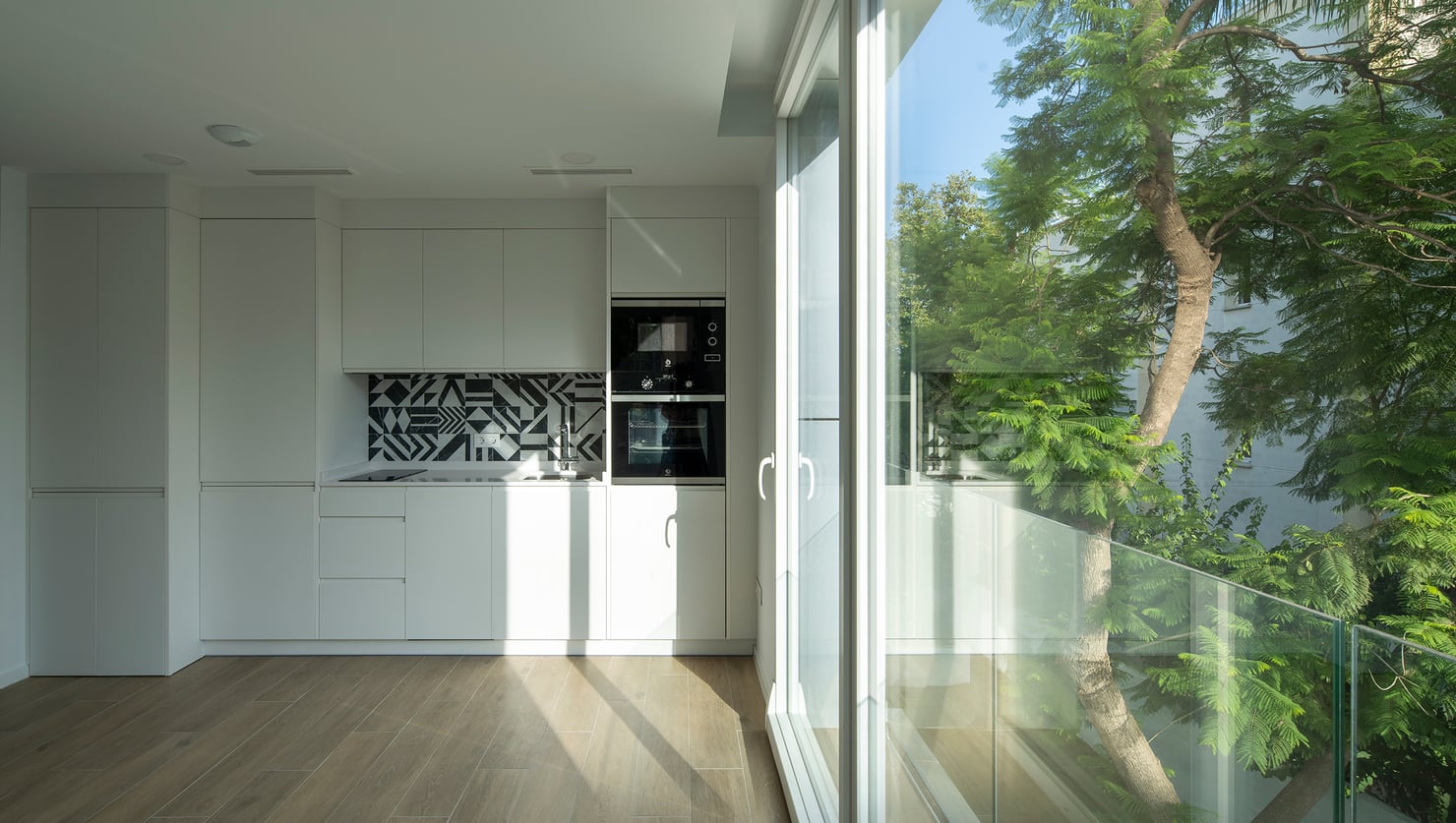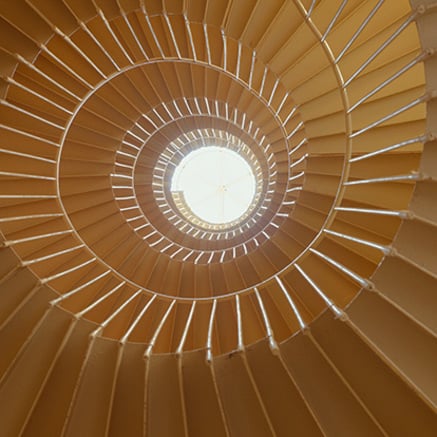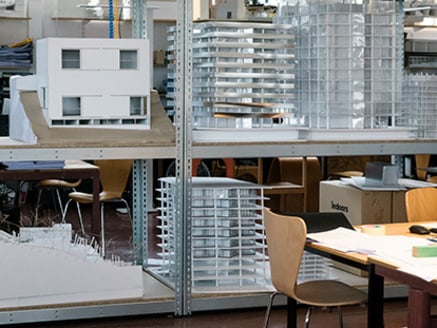
“Daylight is a basic nutritional requirement.”
Prof. Peter Andres: light
What does a room need to make us feel comfortable? As much natural light as possible. Studies have shown that the brighter a room, the more positively we rate it. No wonder, says lighting planner Professor Peter Andres: we humans are after all creatures of the light. Here he explains why daylight cannot be replaced by anything else, as well as what to look for when choosing windows so that no light is lost in the course of new builds or refurbishments.
Is there such a thing as an optimum window area per room?Prof. Peter Andres: No, we light planners calculate this differently. In our latitudes we recommend five to ten percent of the external brightness for living or communal areas. This means that the room is bright and there is no problem with light in the dark months of the year. The location and construction affect how the architect and lighting planner will achieve this figure of five to ten percent. Sometimes bigger windows are needed because an adjacent house is so close. Matters look different in a wide open space. That is why there is no optimum window area per room. It has to be decided according to each individual case.
How critical is the distribution of windows in the room?Extremely important. Just one example: a fanlight provides up to three times as much light as a side window of the same size. If, as with refurbishments, we want to make maximum use of the existing window surfaces, then the top edge of the window is also important. If I can move it up by just 10 cm, I will get disproportionately more light into the room. If that is not possible, we have to choose narrow frames and good-quality glass to minimise the light lost by refurbishment.
Why is it so important to get as much light as possible inside?Light is a basic nutritional requirement. Without light we humans would not exist. We are creatures of the light. It starts in the morning: we need a degree of brightness just to wake up. Only when light strikes the eyes is a positive stress hormone released in the brain; this suppresses the sleep hormone melatonin and thus makes us active. In the past people would spend much more time outdoors, while today we have to spend most of our time indoors for work. We are not designed for that. All of our body’s functions have in the course of evolution developed in conjunction with natural light. And now, in the last nanoseconds of evolution, we are attempting to create a similar effect using artificial light sources. That won’t work. Nothing can replace daylight.
Can a lack of light be harmful to our health?Yes, our whole body system gets confused if we get too little daylight. Sleep disorders, vitamin-D deficiency or depressive disorders are not uncommon. Unfortunately, lack of light does not cause us pain. And not everyone has a workplace right by the window. What is more, light quality often suffers from the poor quality of the window glass. In other words, the light it brings into the room is no longer as natural as it should be. So we try to compensate for this deficit with artificial light. But this blocks the body from synchronising itself with the time of day or the seasons. It is of course bright enough to work by, but there is a lack of natural light.
You mentioned light quality…Yes, window glass does exist that reduces the quality of the light because it cuts off energy in the short-wave and long-wave spectrum in the area of transition between visible and invisible light. We now know that adequate light in the long-wave infrared range will prevent age-related macular degeneration. Short-wave blue light wakes us and keeps us active. Both are important for our well-being. In this respect, it is not just a matter of bringing sufficient light inside. The light should also cover the entire spectrum.
The nature of the glass will therefore affect both the quantity and the quality of the daylight entering the room?Of course. Low-quality triple glazing will for example mean a light loss of up to 30 percent. You have to take care that you don’t end up sitting in a room that is well insulated, but insufficiently bright. There are however now good products available in this area, such as triple glazing that can achieve the light transmittance values of double glazing. This optimises insulation while minimising light loss.
Is there such a thing as an optimum window area per room?Prof. Peter Andres: No, we light planners calculate this differently. In our latitudes we recommend five to ten percent of the external brightness for living or communal areas. This means that the room is bright and there is no problem with light in the dark months of the year. The location and construction affect how the architect and lighting planner will achieve this figure of five to ten percent. Sometimes bigger windows are needed because an adjacent house is so close. Matters look different in a wide open space. That is why there is no optimum window area per room. It has to be decided according to each individual case.
How critical is the distribution of windows in the room?Extremely important. Just one example: a fanlight provides up to three times as much light as a side window of the same size. If, as with refurbishments, we want to make maximum use of the existing window surfaces, then the top edge of the window is also important. If I can move it up by just 10 cm, I will get disproportionately more light into the room. If that is not possible, we have to choose narrow frames and good-quality glass to minimise the light lost by refurbishment.
Why is it so important to get as much light as possible inside?Light is a basic nutritional requirement. Without light we humans would not exist. We are creatures of the light. It starts in the morning: we need a degree of brightness just to wake up. Only when light strikes the eyes is a positive stress hormone released in the brain; this suppresses the sleep hormone melatonin and thus makes us active. In the past people would spend much more time outdoors, while today we have to spend most of our time indoors for work. We are not designed for that. All of our body’s functions have in the course of evolution developed in conjunction with natural light. And now, in the last nanoseconds of evolution, we are attempting to create a similar effect using artificial light sources. That won’t work. Nothing can replace daylight.
Can a lack of light be harmful to our health?Yes, our whole body system gets confused if we get too little daylight. Sleep disorders, vitamin-D deficiency or depressive disorders are not uncommon. Unfortunately, lack of light does not cause us pain. And not everyone has a workplace right by the window. What is more, light quality often suffers from the poor quality of the window glass. In other words, the light it brings into the room is no longer as natural as it should be. So we try to compensate for this deficit with artificial light. But this blocks the body from synchronising itself with the time of day or the seasons. It is of course bright enough to work by, but there is a lack of natural light.
You mentioned light quality…Yes, window glass does exist that reduces the quality of the light because it cuts off energy in the short-wave and long-wave spectrum in the area of transition between visible and invisible light. We now know that adequate light in the long-wave infrared range will prevent age-related macular degeneration. Short-wave blue light wakes us and keeps us active. Both are important for our well-being. In this respect, it is not just a matter of bringing sufficient light inside. The light should also cover the entire spectrum.
The nature of the glass will therefore affect both the quantity and the quality of the daylight entering the room?Of course. Low-quality triple glazing will for example mean a light loss of up to 30 percent. You have to take care that you don’t end up sitting in a room that is well insulated, but insufficiently bright. There are however now good products available in this area, such as triple glazing that can achieve the light transmittance values of double glazing. This optimises insulation while minimising light loss.

Sunlight creates a pleasant atmosphere. However, depending on the season, it can produce an excessively warm indoor climate. That is why it is important to think about heat and glare protection right from the start.

In 1986 Prof. Peter Andres opened his lighting planning office in Hamburg, adding another location in Tyrol in 2000. He has been teaching at the Peter Behrens School of Arts (PBSA) in Düsseldorf since 2006.
Still want more?
See here for further interesting reading matter.






